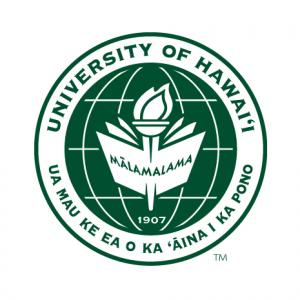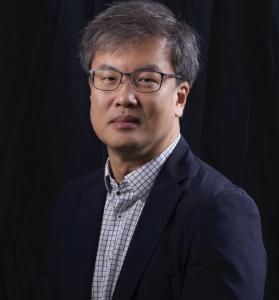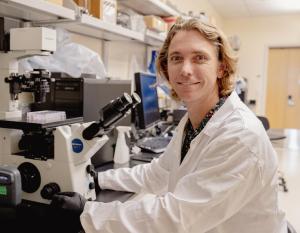
Hawaii Researchers Selected for I-RED ASCEND2.0 Program to Advance Food Preservation and Biologic Medicine Innovations
Dr. Soojin Jun & Dr. Jesse Owens from UH Manoa join the I-RED ASCEND2.0 cohort, driving biomedical innovation with entrepreneurial training.
HONOLULU, HI, UNITED STATES, December 16, 2024 /EINPresswire.com/ -- Dr. Soojin Jun and Dr. Jesse Owens from the University of Hawaii at Manoa have been selected to participate in the highly competitive I-RED, ASCEND2.0 2024-2025 cohort. Funded by the National Institutes of Health (NIH) National Institute of General Medical Sciences, ASCEND2.0 accelerates the commercialization of biomedical innovations and equips researchers with entrepreneurial training to bring groundbreaking technologies to market through the I-RED West Program.Innovative Food Preservation: Dr. Soojin Jun
Dr. Soojin Jun, a Professor in the Department of Human Nutrition, Food and Animal Sciences, specializes in emerging food processing technologies. His expertise spans thermal and non-thermal food processing, biosensing, food nanotechnology, and biopreservation. Over his career, Dr. Jun has authored more than 100 peer-reviewed journal articles, served as an editor for international journals such as the Journal of Food Science, and co-authored the widely recognized book Food Processing Operations Modeling: Design and Analysis. His contributions have positioned him as a leader in advancing innovative solutions for food preservation and biotechnological applications.
At the forefront of his work is a patented supercooling technology developed by Jun Innovations Inc., a company he founded in 2015. The technology, covered under U.S. Patent No. 10,111,452, uses pulsed electric and oscillating magnetic fields to prevent the crystallization of perishable materials even when cooled far below freezing. This cutting-edge solution has already demonstrated its potential in preserving the quality and longevity of food products, and now Dr. Jun is exploring its transformative applications in biomedical preservation.
Dr. Jun’s goals include advancing supercooling technology for critical applications such as vaccine storage, bulk transport of biologics, and preservation of blood products, organs, and tissues. The ASCEND2.0 program will provide critical funding for animal model studies and mentorship to create a robust commercialization plan. Dr. Jun sees this opportunity as the catalyst for scaling his technology to serve industries beyond food preservation, bridging the gap between innovation and impact.
Transforming Biologic Medicine Production: Dr. Jesse Owens
Dr. Jesse Owens, an Assistant Professor in the Department of Cell and Molecular Biology, is redefining genome editing to improve biological medicine manufacturing efficiency, precision, and safety. His lab focuses on advancing integrase- and transposase-based genome editing tools that enable the targeted and efficient integration of large DNA cargos, addressing limitations in existing technologies. Dr. Owens’ approach eliminates the reliance on double-stranded DNA breaks, reducing risks such as genomic instability and making gene therapy safer and more effective.
Dr. Owens has developed a hyperactive integrase enzyme capable of bypassing traditional trial-and-error methods for creating specialized cell lines. This innovative tool reduces the time required to generate these cell lines from several months to just a few weeks, dramatically improving the speed and cost-effectiveness of biologic medicine production. The technology’s potential impact is far-reaching, particularly during health emergencies, as it enables faster delivery of life-saving treatments.
Dr. Owens is also the Chair of the Scientific Advisory Board at Komo Biosciences, a company founded to develop genome-editing tools that transform biologic medicine production. With ASCEND2.0 support, Dr. Owens will validate the technology with early-stage data and secure further funding. The program will also help expand its applications in therapeutic development, biomanufacturing, and synthetic biology. Dr. Owens aims to position this technology as a transformative solution for global healthcare, improving access and affordability of advanced treatments.
About the ASCEND2.0 Program
ASCEND2.0, funded by the National Institutes of Health (NIH), is an initiative designed to accelerate the commercialization of biomedical innovations by equipping researchers with entrepreneurial skills and strategies for bringing their discoveries to market. This program is supported by the NIH's Institutional Development Award (IDeA), a congressionally mandated initiative managed by the National Institute of General Medical Sciences.
The IDeA program focuses on building research capacity in states with historically low levels of NIH funding. It supports advancements in basic, clinical, and translational research, alongside faculty development and infrastructure enhancements. By strengthening institutional capabilities in biomedical research, ASCEND2.0 enhances the competitiveness of investigators in securing research funding while enabling clinical and translational research to address the needs of medically underserved communities.
IDeA-Eligible States
The program is open to institutions in the following states and territories:
Alaska, Arkansas, Delaware, Hawaii, Idaho, Kansas, Kentucky, Louisiana, Maine, Mississippi, Montana, Nebraska, Nevada, New Hampshire, New Mexico, North Dakota, Oklahoma, Rhode Island, South Carolina, South Dakota, Vermont, West Virginia, Wyoming, and Puerto Rico.
ASCEND2.0 plays a pivotal role in empowering biomedical researchers to transform their innovations into impactful healthcare solutions, fostering excellence in underserved regions.
About Jun Innovations Inc.:
Jun Innovations Inc. (www.juninnovationsinc.com), founded by Dr. Soojin Jun, develops cutting-edge supercooling technology designed to preserve perishable materials at below-freezing temperatures without forming ice crystals. The company is committed to advancing solutions in food preservation and biomedical applications, such as vaccine storage and organ preservation, using innovative approaches to enhance quality, safety, and efficiency in critical industries.
About Komo Biosciences
Komo Biosciences (www.komobiosciences.com) develops genome-editing tools to improve biologic medicine production. Their innovations increase manufacturing precision, safety, and efficiency, accelerating the delivery of life-saving therapies. Applications span therapeutic development, biomanufacturing, and synthetic biology. Dr. Jesse Owens serves as Chair of the Scientific Advisory Board, guiding the company’s efforts to revolutionize genome engineering technologies.
*Disclaimer: Research reported in this publication was supported by the National Institute of General Medical Sciences of the National Institutes of Health under Award Number UT2GM148080. The content is solely the responsibility of the authors and does not necessarily represent the official views of the National Institutes of Health.
Sofia A. Ortiz
New Mexico Start-Up Factory
+1 505-504-3325
sofia@nmsuf.com
Visit us on social media:
Facebook
X
LinkedIn
Distribution channels: Business & Economy, Education, Healthcare & Pharmaceuticals Industry, Science, Technology
Legal Disclaimer:
EIN Presswire provides this news content "as is" without warranty of any kind. We do not accept any responsibility or liability for the accuracy, content, images, videos, licenses, completeness, legality, or reliability of the information contained in this article. If you have any complaints or copyright issues related to this article, kindly contact the author above.
Submit your press release


